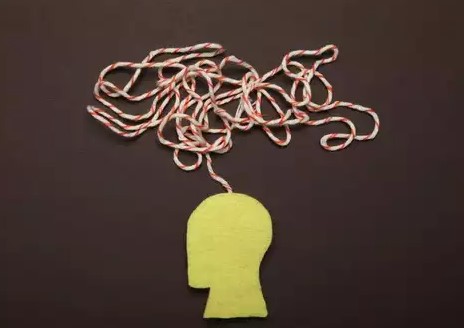Affective Dysregulation: Understanding Emotional Regulation Challenges
 Affective dysregulation is a term used to describe difficulties in regulating emotions. It is a condition that can affect people of all ages, but is most commonly seen in children and adolescents. Affective dysregulation can manifest in a variety of ways, including difficulty controlling emotions, difficulty managing stress, and difficulty managing relationships. It can also lead to a range of mental health issues, such as depression, anxiety, and even substance abuse. Understanding the causes and symptoms of affective dysregulation is essential for providing effective treatment and support.
Affective dysregulation is a term used to describe difficulties in regulating emotions. It is a condition that can affect people of all ages, but is most commonly seen in children and adolescents. Affective dysregulation can manifest in a variety of ways, including difficulty controlling emotions, difficulty managing stress, and difficulty managing relationships. It can also lead to a range of mental health issues, such as depression, anxiety, and even substance abuse. Understanding the causes and symptoms of affective dysregulation is essential for providing effective treatment and support.
Exploring the Causes of Affective Dysregulation: What Factors Contribute to Emotional Regulation Challenges?
Affective dysregulation is a condition characterized by difficulty in regulating emotions, which can lead to significant distress and impairment in functioning. While the exact causes of affective dysregulation are not yet fully understood, research suggests that a variety of factors may contribute to the development of this condition. This article will explore some of the potential causes of affective dysregulation, including biological, psychological, and environmental factors.
Biological Factors
Research suggests that biological factors may play a role in the development of affective dysregulation. For example, studies have found that individuals with affective dysregulation may have an imbalance of neurotransmitters, such as serotonin and dopamine, which can lead to difficulty in regulating emotions. Additionally, research has suggested that genetic factors may also be involved in the development of affective dysregulation, as certain genes have been linked to an increased risk of developing this condition.
Psychological Factors
Psychological factors may also contribute to the development of affective dysregulation. For example, individuals who have experienced trauma or abuse in childhood may be more likely to develop this condition. Additionally, research suggests that certain personality traits, such as impulsivity and difficulty in managing stress, may also increase the risk of developing affective dysregulation.
Environmental Factors
Finally, environmental factors may also play a role in the development of affective dysregulation. For example, individuals who grow up in an environment that is characterized by chaos or instability may be more likely to develop this condition. Additionally, research suggests that certain parenting styles, such as those that are overly controlling or neglectful, may also increase the risk of developing affective dysregulation.
In conclusion, while the exact causes of affective dysregulation are not yet fully understood, research suggests that a variety of factors may contribute to the development of this condition. These factors include biological, psychological, and environmental factors, such as an imbalance of neurotransmitters, a history of trauma or abuse, certain personality traits, and certain parenting styles. By understanding the potential causes of affective dysregulation, individuals can take steps to reduce their risk of developing this condition and seek appropriate treatment if needed.
Strategies for Coping with Affective Dysregulation: How to Manage Emotional Regulation Difficulties
Managing emotional regulation difficulties can be a challenging task, but there are strategies that can help. Affective dysregulation is a term used to describe difficulty managing emotions, and it can be a symptom of various mental health conditions. Here are some strategies for coping with affective dysregulation:
1. Identify Triggers: It is important to identify the situations or events that trigger your emotional dysregulation. Once you have identified these triggers, you can work on developing strategies to manage them.
2. Practice Mindfulness: Mindfulness is a practice that involves focusing on the present moment and being aware of your thoughts and feelings without judgment. Practicing mindfulness can help you become more aware of your emotions and better able to manage them.
3. Develop Coping Skills: Developing coping skills can help you manage your emotions in a healthy way. Examples of coping skills include deep breathing, progressive muscle relaxation, and positive self-talk.
4. Seek Professional Help: If you are struggling to manage your emotions, it is important to seek professional help. A mental health professional can help you develop strategies to better manage your emotions and provide support.
By following these strategies, you can learn to better manage your emotions and cope with affective dysregulation.Affective dysregulation is a complex condition that can have a significant impact on an individual’s life. It is important to understand the underlying causes of affective dysregulation and to develop strategies to help individuals manage their emotions. With the right support and resources, individuals can learn to better regulate their emotions and lead more fulfilling lives.